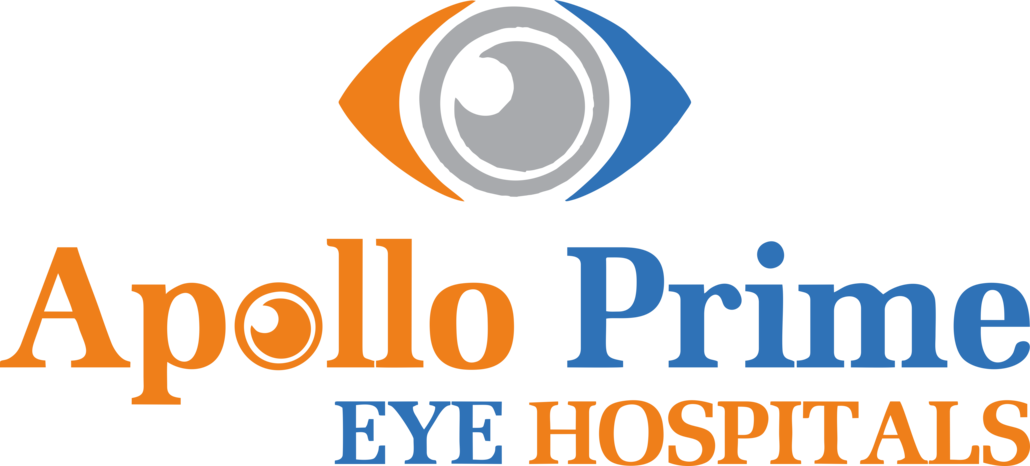In an emergency? Need help now?
Your healthcare provider will examine your eyes and may even run a few tests. ... If you think you may have an eye infection and need treatment, our urgent care can help.
Make an AppointmentAbout Us
To contribute significantly to the global vision “A world in which no one is needlessly blind and where those with unavoidable vision loss can achieve their full potential”.

Apollo Prime Eye Hospitals aims at providing compassionate and quality eye care to all. We aim to offer advanced diagnostic services and latest technology driven ophthalmological treatment services to all our patients, in need of ophthalmological care. To contribute in our mission, we have a team of highly qualified and experienced professionals. Backed by a young and dynamic team, we also extend the reach of our services to the community, through active public awareness programmers and screening camps. Through our services, we wish to contribute towards the collective national and international aim of eliminating the main causes of all preventable and treatable blindness, a major public health issue.
- Comprehensive advanced eye care services under one roof.
- State of art equipments
- Team of highly qualified & experienced doctors for excellent patient care.
- Fully Air-Conditioned Set up.
- In house pharmacy and optical services available.
Free Service
free eye check up for senior citizens on Saturday.
Optical Service
Thin, light lenses and all types of coatings are available.
Technology
Safe and Proven Technology Use.
Services
Cataract Care
We offer Micro Incision Cataract surgery with the latest WhiteStar Technology for Cold Phacoemulsification. Now you can go back to work within a day or two, with excellent vision!
Refractive Surgery
We offer Standard and Wavefront customized LASIK, including bladeless surgery for precise and reliable outcomes. Its time to finally achieve your dreams and be spectacle-independent!
Vitreo-Retinal services
We offer latest diagnostic as well as therapeautic services for all vitreo-retinal diseases, including Retinal detachment, Diabetic Retinopathy, Macular degeneration and Retinal Vein occlusions.
Glaucoma Care
All investiations and treatment options for patients suffering from glaucoma, are available at our setup, including IntraOcular Pressure measurements, Perimetry, Pachymetry, Optic Disc evaluation with OCT and surgical treatment for glaucoma.
Corneal services including corneal transplantation
We works round the clock promoting awareness about eye donation through media, publicity materials, and through the National Eye Donation Fortnight.
Ocular trauma
Suffered trauma due to blunt/sharp objects? Foreign body/chemical spill in the eye? Report to us immediately for treatment.
Oculoplasty Care
We offer surgical solutions for all lid/orbit related pathologies including lid and orbital tumors.
Pediatric cataract and strabismus services
Noticed Deviated/squint eyes in your child? A white spot in the child's eye? Your child is not seeing/following objects? Consult us immediately to rule out serious eye conditions which can have a lasting impact on the child's life.
Neuroophthalmology
Neuro-ophthalmology deals with vision problems and disorders associated with the nervous system that affect vision, control of eye movements, and pupillary reflexes.
Make an Appointment
Optometrist will enquire you as soon as possible will take your medical & surgical history, check vision & eye pressure. Please inform us if you have an allergy to any medicine or food items.
Some Treatments
A reliable diagnosis can make all the difference and provide a successful treatment.
Cataract
A cataract is a clouding of the eye’s naturally clear lens. When the lens becomes cloudy, light rays cannot pass through it easily, and vision is blurred.
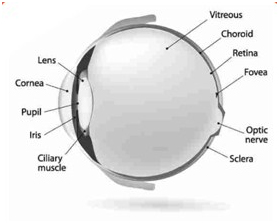
What Causes a Cataract?
Medical problems such as diabetes, Injury to the eye, medications, especially long-term steroids in any form, unprotected exposure to sunlight, previous eye surgeries and other unknown factors can accelerate the formation of cataract.
Cornea & Ocular
The cornea is the clear front dome shaped window of the eye. It provides about 2/3 of the eye's focusing power. It gives us a clear window to look through and is the key to good vision.
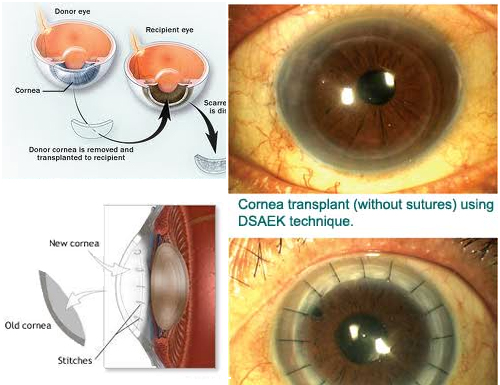
Dry Eye Disorders, Corneal diseases with stem-cell deficiency, Ocular sensitivity and Neurotrophic Keratopathy, Ocular allergic diseases, Eyelid margin diseases such as Blepharitis and Meibomitis can all affect the ocular surface and the cornea, leading to disability.
Retina Vitreous Service
The Retina service is meant to treat and cure the infections and inflammations developed in the retina and vitreous.
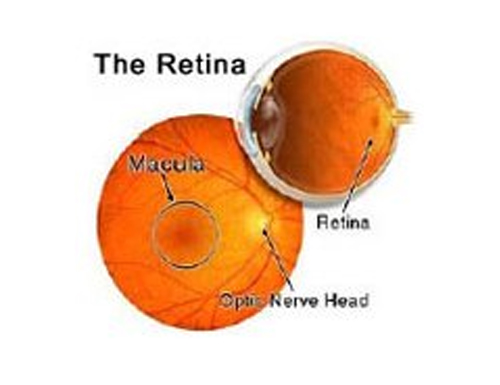
The Retina is the light-sensitive film in the back of the eye. The image is perceived here and transmitted to the brain by the optic nerve. The vitreous is the clear gel that fills the back of the eye. Diseases of the retina can affect any age.
Glaucoma
Glaucoma is an eye disease that causes loss of sight by damaging a part of the eye called the optic nerve. This nerve sends information from your eyes to your brain.
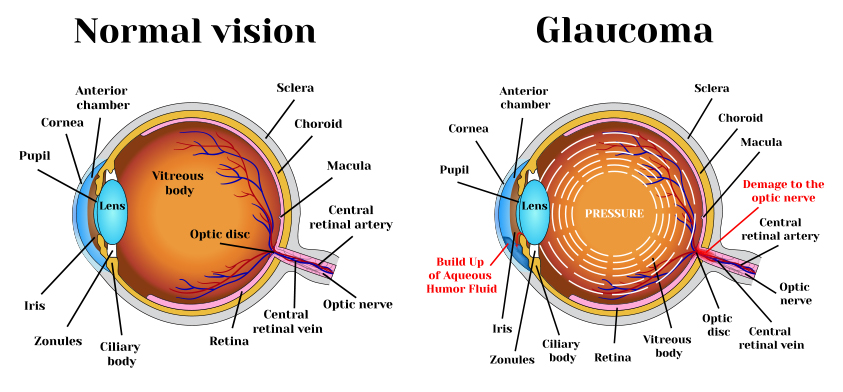
What are the three major signs that a person may have glaucoma?
Optic nerve damage
Vision loss (visual field loss)
Increased eye pressure (elevated intraocular pressure)
Reviews
Some Reviews are Given from Our Patients and Our Hospital Visitors
Nice hospitality and well behaved staff. Over all very good eye care hospital and excellent work by Dr. Pranay. Professionalism at it's best.All the required precautions are very well taken considering the current situation!

Ansul Shah
All protection taken against covid, excellent support from medical staff, special appreciation for Dr Pranay for great treatment, would definitely recommend for any eye related treatment.

Yash Shah
It's marvelous experience , all protection taken in terms of covid-19, excellent support by medical staff. Such great treatment given by Dr. Pranay. Recommended atleast once visit to Hospital... Thanks a lot...

Nilesh Sharma
One of the best places and quite affordable with the best young doctors like Dr. Pranay, who encapsulate the spirit and codes of being a doctor with their politeness and professionalism... Only place to visit for opthalmic problems...

Milap Purohit
Good staff and fully appreciate them co operation. And specially Dr .Minaz has expertise and well experience for the treatment.

Baraiya Bhargav
Apollo prime hospital team have been brilliantin operations for cataracts in one eye of my father he is 58 years old and Dr. Pranay has done the great job and given the best vision of my father's life.

Rahul Soni
A perfect hospital for any problem of eye. Nice place experienced doctors team very nice staff. Totally pleased 👌👌👌👌👌

Malti Brahmbhatt
Frequently Asked Questions
-
How often and when should I get my eyes checked?
By getting your eyes checked on a regular basis, or when you may think you are having troubles with your vision, you can keep your eyes healthy and stay clear of further complications. Many sight-threatening diseases, if detected early, can be cured or treated to prevent, or slow, the progression of any vision loss. The most important preventive step is receiving routine examinations by a qualified eye care professional. Children should receive their first comprehensive eye examination before the age of 3, unless a specific condition or history of family childhood vision problems warrants an earlier examination. Anyone with a history of visual problems should get routine preventive care. People ages 20 to 30 should have an eye exam every two years, unless visual changes, pain, flashes of light, new floaters, injury, or tearing occurs. Then, immediate care is necessary. Yearly exams become important in the late thirties when changes in vision and focus along with eye diseases are more likely to develop. People with diabetes are at risk for several eye disorders, including diabetic retinopathy, glaucoma, and cataracts, and should have eye examinations every year. Squinting, blinking, rubbing eyes frequently, headaches, changes in vision and difficulty with visual concentration within arm’s length may be signs of eye problems and should be checked immediately by your ophthalmologist. When it comes preserving your vision, early detection is the solution.
-
What is Lasik?
LASIK, short for laser-assisted in situ keratomileusis, is the most popular refractive surgery available today. Each year, more than one million LASIK procedures are performed in the United States. LASIK has become the premier surgery for vision correction because it’s quick and painless, there is little or no discomfort after the procedure and vision recovery is rapid — some patients already see 20/20 the following day. It can also reduce the need for reading glasses among patients over age 40 who wear bifocals. The actual surgery usually takes less than 15 minutes for both eyes, but expect to be at the surgery center for an hour or more.
-
Is my cornea thick enough for LASIK?
Without knowing how near- or farsighted you are, and without knowing what laser you will be treated with, it is impossible to know how much tissue will be removed. The issue is how much residual tissue is left after the treatment. If LASIK is not possible, PRK or even ICL (implantable contact lens) may be an alternate solution.
-
I have beginning macular degeneration. Is there a certain type of dark sunglasses I should wear to protect my eyes?
There is no definitive scientific evidence that any particular type of sunglasses can protect against the development or progression of macular degeneration (a breakdown of tissues in the back of the eye). However, we do encourage the wearing of sunglasses with 100 percent UV absorption as well as wearing a broad-brimmed hat when outdoors.
-
What’s the benefit of using dye to check for AMD?
The use of a dye in the management of AMD is typically done when the doctor suspects abnormal blood vessels are present. Abnormal blood vessels can sometimes be found without the patient having noticeable symptoms, based on clinical exam or other testing. Speak with your ophthalmologist regarding what test is best recommended for you.
-
Why am I struggling to focus when reading?
This may be due to the progressive loss of the ability to focus near, which on average begins at age 40. The process is called presbyopia and the solution is reading glasses. If you are significantly younger than 40, it may be that you are farsighted or possibly a childhood strabismus (misaligned eyes), that was not symptomatic but is starting to become evident. Dry eyes can also cause symptoms like this. Also, other conditions like myasthenia gravis or Parkinson’s can cause similar symptoms. A visit to an ophthalmologist is necessary to determine if any of these things are the case or perhaps some other issue.
-
If I had strabismus surgery as a child can I still have LASIK?
As long as your eyes are found to be healthy enough for LASIK, past strabismus surgery will not prevent you from having LASIK.
-
Can your distance vision fluctuate as you are healing from cataract surgery?
Yes. As the eye heals the eye’s surface can get dry or irritated and the vision can fluctuate. However, any significant and persistent decrease of vision after surgery should be immediately reported to your surgeon.
-
Is laser surgery better for my cataract type?
Laser assisted cataract surgery and conventional cataract surgery are highly successful methods for treating, generally, all types of cataracts. Studies suggest that clinical outcomes are no different when comparing different surgical approaches. Speak with your ophthalmologist about what approach would be best for you.
-
Is a multifocal IOL safe for use if you have uncomplicated diabetes?
Yes, as long as you have no diabetic retinopathy. Be sure to confirm with your ophthalmologist after you have had a complete dilated eye exam that the diabetes has not affected your vision.
-
When Will Diabetes Affect My Sight?
With good diabetic control, there is a very high likelihood that you will never develop retinopathy to the point that it will affect your eyesight. As you note, it is critical that you maintain good diabetic control and that you see an ophthalmologist regularly for dilated retinal examinations.
-
Is it possible to have a retinal tear without any symptoms?
Yes, you definitely can develop a retinal tear without any symptoms. While most retinal tears are associated with the sudden onset of flashing lights and floaters, symptoms can vary widely between patients, including having no symptoms whatsoever.
Contact
Our Address
210 ,Second Floor,Pushkar Business Park, Bapunagar, Ahmedabad.
Email Us
apolloprimeeyehospitals@gmail.com
Call Us
9725960070 , 8141337766
